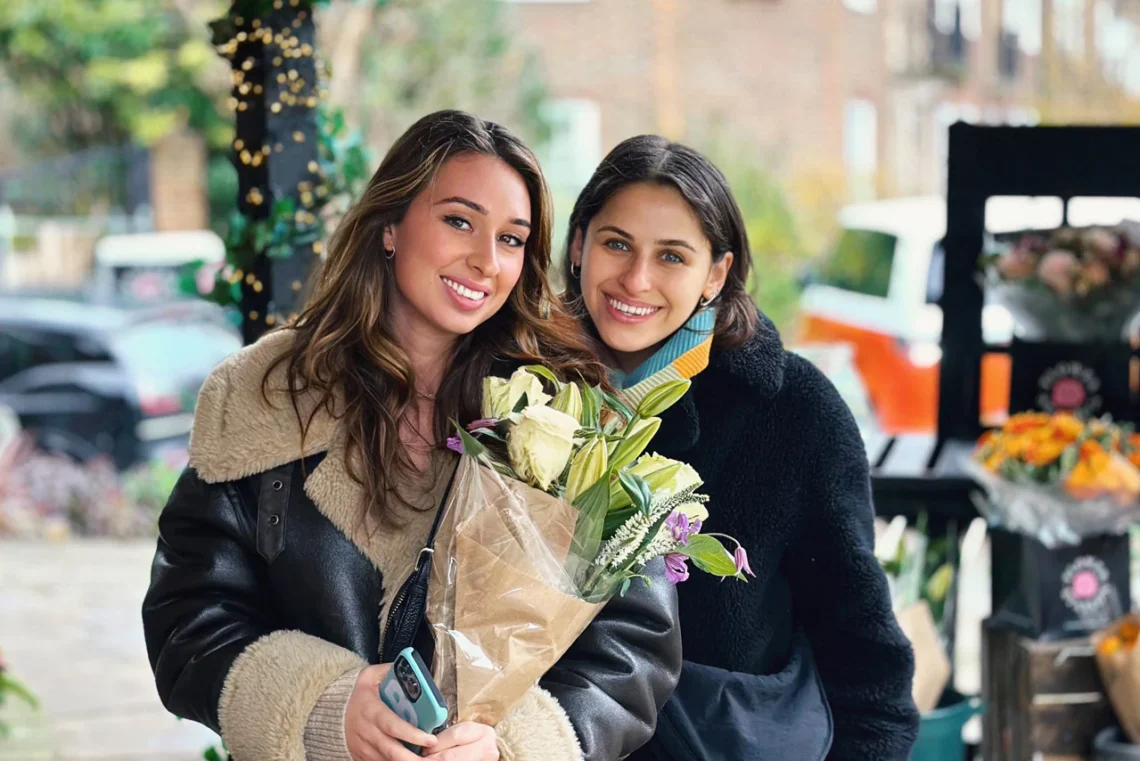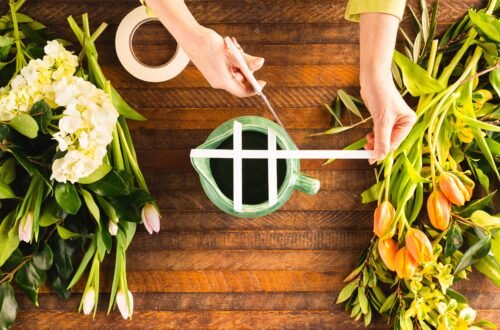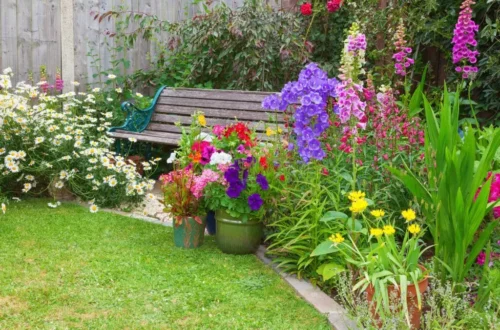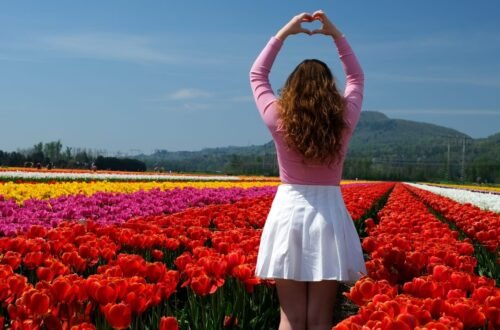Flowers and women share a bond that transcends time, culture, and geography. From ancient myths to modern-day celebrations, flowers have adorned women’s lives, symbolizing their strength, beauty, and resilience. This article dives into the rich history, cultural significance, and modern expressions of this connection, weaving together stories, practical insights, and actionable tips for celebrating women with the perfect blooms.
The Historical Roots of Women and Flowers
The link between women and flowers stretches back to ancient civilizations. In Greek mythology, goddesses like Persephone were tied to flowers, with her story intertwined with the blooming and wilting of the seasons. Flowers weren’t just decorative—they carried deep symbolic meaning, often representing fertility, love, and transformation.
Flowers in Ancient Rituals
In ancient Egypt, women wore lotus flowers as symbols of rebirth and purity during sacred ceremonies. Similarly, in ancient Rome, women adorned themselves with roses during festivals honoring Venus, the goddess of love. These blooms were more than accessories; they were emblems of divine feminine energy.
Medieval and Renaissance Symbolism
By the Middle Ages, flowers like the lily became synonymous with virtue and chastity, often depicted in paintings of the Virgin Mary. During the Renaissance, women in European courts used flowers in their hair and gowns to signal status, romance, or even political allegiance. The language of flowers, or floriography, began to take shape, allowing women to communicate unspoken emotions through carefully chosen blooms.
The Symbolism of Flowers in Women’s Lives
Flowers have long served as a universal language, expressing what words sometimes cannot. For women, flowers carry meanings that resonate with their experiences—love, strength, sorrow, and joy. Let’s explore some of the most iconic flowers and their significance in celebrating women.
The Rose: A Symbol of Love and Strength
Roses, with their velvety petals and thorns, mirror the duality of women’s lives—beauty paired with resilience. Red roses signify passionate love, while white roses evoke purity and remembrance, often used in weddings or memorials. Pink roses, a softer hue, celebrate gratitude and admiration, perfect for honoring mothers or mentors.
The Mimosa: Emblem of International Women’s Day
The mimosa flower, with its vibrant yellow puffs, is the official bloom of International Women’s Day, celebrated on March 8. Chosen in 1946 in Italy, the mimosa represents strength, sensitivity, and feminine power, making it a fitting tribute to women’s contributions worldwide.
The Lotus: Rising Above Challenges
The lotus flower, rooted in muddy waters yet blooming pristine, symbolizes women’s ability to rise above adversity. In many cultures, it’s associated with spiritual growth and resilience, qualities often celebrated in women who overcome societal or personal challenges.
Cultural Celebrations of Women and Flowers
Across the globe, flowers play a central role in honoring women during festivals, rituals, and milestones. These traditions highlight the universal connection between women and nature’s most delicate creations.
International Women’s Day: A Global Tribute
Every March 8, millions gift mimosa flowers to celebrate women’s achievements. In Italy, women exchange sprigs of mimosa as a gesture of solidarity. In Russia and Eastern Europe, flowers like tulips and roses flood markets, symbolizing appreciation for women’s roles in family and society.
Mother’s Day: A Floral Embrace
Mother’s Day, celebrated on the second Sunday of May in many countries, is one of the biggest floral holidays globally. In the U.S., carnations are a traditional choice, with white carnations honoring deceased mothers and pink or red ones celebrating those still with us. Florists see a surge in orders, with 24% of annual flower sales tied to this holiday.
Weddings and Bridal Bouquets
Bridal bouquets are a timeless tradition, with flowers chosen to reflect the bride’s personality or cultural heritage. In India, marigolds symbolize prosperity, while in Western weddings, roses and peonies dominate for their romantic allure. The bouquet toss, a playful ritual, underscores flowers’ role in celebrating women’s transitions.
Modern Expressions: Flowers in Women’s Empowerment
Today, flowers are more than gifts—they’re tools for empowerment, self-expression, and creativity. Women are reclaiming flowers as symbols of their agency, from floral entrepreneurship to self-care rituals.
Women in the Floral Industry
The floral industry is thriving, with women leading the charge as florists, designers, and entrepreneurs. According to the U.S. Bureau of Labor Statistics, over 70% of florists are women, crafting arrangements for weddings, funerals, and everyday moments. Women like Kathleen Willcox, a floral designer in Australia, emphasize SEO strategies to grow their businesses, proving that flowers are as much about commerce as creativity.
Flowers as Self-Care
In recent years, women have embraced flowers as part of wellness routines. A 2023 study from Rutgers University found that exposure to flowers reduces stress and boosts mood, making them a staple in self-care practices. From flower arranging workshops to home deliveries, women are using blooms to nurture their mental health.
Floral Fashion and Art
Flowers are blooming in fashion and art, with women designers like Frida Kahlo famously incorporating floral crowns into their identities. Modern influencers on platforms like Instagram showcase floral-inspired outfits, from embroidered dresses to flower-adorned accessories, celebrating femininity with a contemporary twist.
Choosing the Perfect Flowers for Women in Your Life
Selecting flowers to honor a woman—whether a mother, friend, or partner—requires thoughtfulness. Here’s a guide to picking blooms that resonate with meaning and occasion.
For Romantic Partners
- Red Roses: Classic for expressing deep love.
- Orchids: Exotic and elegant, symbolizing luxury and devotion.
- Peonies: Lush and romantic, perfect for anniversaries.
When choosing, consider her personality. A bold, vibrant woman might love fiery orange lilies, while a minimalist might prefer sleek white tulips.
For Mothers and Mentors
- Carnations: Traditional for Mother’s Day, symbolizing gratitude.
- Sunflowers: Bright and cheerful, reflecting warmth and loyalty.
- Hydrangeas: Full and versatile, ideal for showing appreciation.
Opt for arrangements in her favorite colors or pair with a heartfelt note for a personal touch.
For Friends and Colleagues
- Daisies: Simple and cheerful, great for casual gestures.
- Chrysanthemums: Long-lasting, symbolizing friendship and support.
- Mimosas: Perfect for International Women’s Day or empowerment events.
Consider a small bouquet or potted plant for a lasting gift that brightens her workspace.
| Occasion | Recommended Flowers | Symbolism |
|---|---|---|
| Romantic Anniversary | Red Roses, Orchids | Love, devotion |
| Mother’s Day | Carnations, Sunflowers | Gratitude, warmth |
| Friendship/Colleague | Daisies, Mimosas | Support, empowerment |
| Weddings | Peonies, Marigolds | Romance, prosperity |
Pros and Cons of Gifting Flowers
Pros
- Emotional Impact: Flowers evoke joy and appreciation, strengthening bonds.
- Versatility: Suitable for any occasion, from birthdays to apologies.
- Affordability: Options range from budget-friendly daisies to luxurious orchids.
- Eco-Friendly Options: Locally sourced or potted plants reduce environmental impact.
Cons
- Short Lifespan: Cut flowers wilt within days, requiring care.
- Allergies: Some women may be sensitive to pollen.
- Cost for Premium Blooms: Exotic flowers like orchids can be pricey.
- Logistics: Delivery mishaps can diminish the gesture’s impact.
Where to Get the Best Flowers
Finding quality flowers is key to making a meaningful gesture. Here are some top options:
Local Florists
Support women-owned flower shops in your community. Use Google My Business to find highly rated florists near you. For example, Sing See Soon in Singapore, a family-owned florist, boosted their reach through strategic SEO, proving the power of local businesses.
Online Flower Delivery Services
- Bloom & Wild: Known for letterbox-friendly bouquets, ideal for busy women.
- The Bouqs Co.: Offers sustainable, farm-direct flowers with vibrant arrangements.
- UrbanStems: Specializes in modern designs with next-day delivery.
Check reviews and delivery policies to ensure freshness and timely arrival.
Farmers’ Markets and Nurseries
For a personal touch, visit local markets or nurseries. You can select fresh blooms or potted plants, often at lower prices than chain retailers. Plus, you’ll support small-scale growers, many of whom are women.
Best Tools for Creating Floral Arrangements
For women who love hands-on creativity, floral arranging is a rewarding hobby. Here are the best tools to get started:
- Floral Shears: Sharp, precise scissors for clean cuts (e.g., Fiskars Floral Snips, $15–$20).
- Flower Frogs: Metal grids to hold stems in place ($5–$10).
- Vases: Clear glass or ceramic vases in various sizes ($10–$50).
- Floral Foam: Provides structure for arrangements ($3–$8 per block).
Pro Tip: Watch YouTube tutorials from creators like Farmhouse Floral Design for beginner-friendly arranging tips.
People Also Ask (PAA) Section
Why are flowers associated with women?
Flowers are linked to women due to their shared symbolism of beauty, resilience, and nurturing qualities. Historical traditions, like gifting flowers to goddesses or using them in women’s rituals, solidified this connection. Today, flowers celebrate women’s strength and grace across cultures.
What flowers symbolize strong women?
Mimosas, lotuses, and roses are often associated with strong women. Mimosas represent empowerment on International Women’s Day, lotuses symbolize overcoming adversity, and roses blend beauty with strength, thanks to their thorns.
What is the flower for International Women’s Day?
The mimosa flower is the official bloom for International Women’s Day, chosen in Italy in 1946 for its bright, resilient nature. It symbolizes strength, sensitivity, and women’s contributions globally.
How do I choose flowers for a woman?
Consider her personality, the occasion, and the flower’s symbolism. For romance, choose red roses; for gratitude, opt for carnations. Check her favorite colors and ensure the blooms are fresh and suited to her environment (e.g., potted plants for small spaces).
Personal Stories: Flowers That Changed Lives
When I was 22, my best friend gifted me a bouquet of sunflowers after a tough breakup. Their bright petals felt like a hug, lifting my spirits when words couldn’t. Years later, I learned she’d spent her last $20 on that bouquet, a gesture that deepened our bond. Flowers aren’t just plants—they’re carriers of love and intention.
In another story, a florist named Maria in Portland shared how a regular customer, a widower, bought three daisies every Tuesday to hand out to strangers. He said it was his way of honoring his late wife, who loved spreading joy. These stories remind us that flowers are more than gifts; they’re bridges between hearts.
SEO Tips for Florists Celebrating Women
For florists looking to tap into the “women and flowers” market, SEO is a game-changer. Here’s how to optimize your floral business website to rank higher on Google:
- Keyword Research: Use tools like Semrush or Google Keyword Planner to find terms like “flowers for women” or “International Women’s Day bouquets.” Focus on long-tail keywords with low competition, like “best flowers for Mother’s Day in [city].”
- Local SEO: Claim your Google My Business profile to appear in local searches. Add photos of your arrangements and customer reviews to boost credibility.
- Content Creation: Write blog posts like “Top 10 Flowers to Celebrate Women” or “How to Choose a Bouquet for Your Mom.” Use keywords naturally and aim for 800–1,500 words per post.
- Optimize Images: Add descriptive ALT tags (e.g., “red rose bouquet for women”) to make images searchable. Compress files to improve site speed, as slow-loading pages hurt rankings.
| SEO Strategy | Tool | Benefit |
|---|---|---|
| Keyword Research | Semrush, Keyword Planner | Targets high-intent customers |
| Local SEO | Google My Business | Boosts visibility in local searches |
| Blog Content | WordPress | Establishes authority, drives traffic |
| Image Optimization | TinyPNG, Photoshop | Improves site speed, SEO ranking |
FAQ Section
What flowers are best for celebrating women?
Roses, mimosas, and carnations are top choices. Roses symbolize love and strength, mimosas honor International Women’s Day, and carnations are perfect for Mother’s Day. Choose based on the occasion and her preferences.
How can I make a floral gift more personal?
Pair the bouquet with a handwritten note or select flowers in her favorite color. Consider her lifestyle—potted plants suit busy women, while cut flowers work for those who love arranging.
Are there eco-friendly flower options?
Yes! Opt for locally sourced flowers or potted plants to reduce carbon footprints. Services like The Bouqs Co. offer sustainable blooms grown on eco-friendly farms.
Why do flowers matter in women’s celebrations?
Flowers carry emotional weight, symbolizing love, resilience, and beauty. They’re a universal gesture that transcends language, making them ideal for honoring women’s milestones and contributions.
Can I learn floral arranging as a beginner?
Absolutely! Start with simple tools like floral shears and a vase. Watch online tutorials or join a local workshop. Practice with affordable flowers like daisies to build confidence.
Conclusion: A Blooming Tribute to Women
The connection between women and flowers is a story of beauty, strength, and resilience. From ancient rituals to modern empowerment, flowers have been a constant companion in women’s lives, celebrating their triumphs and soothing their sorrows. Whether you’re gifting a bouquet to a loved one or arranging blooms for yourself, let each petal carry a message of love and appreciation. Next time you see a flower, think of the women in your life—and how, like them, it blooms against all odds.





